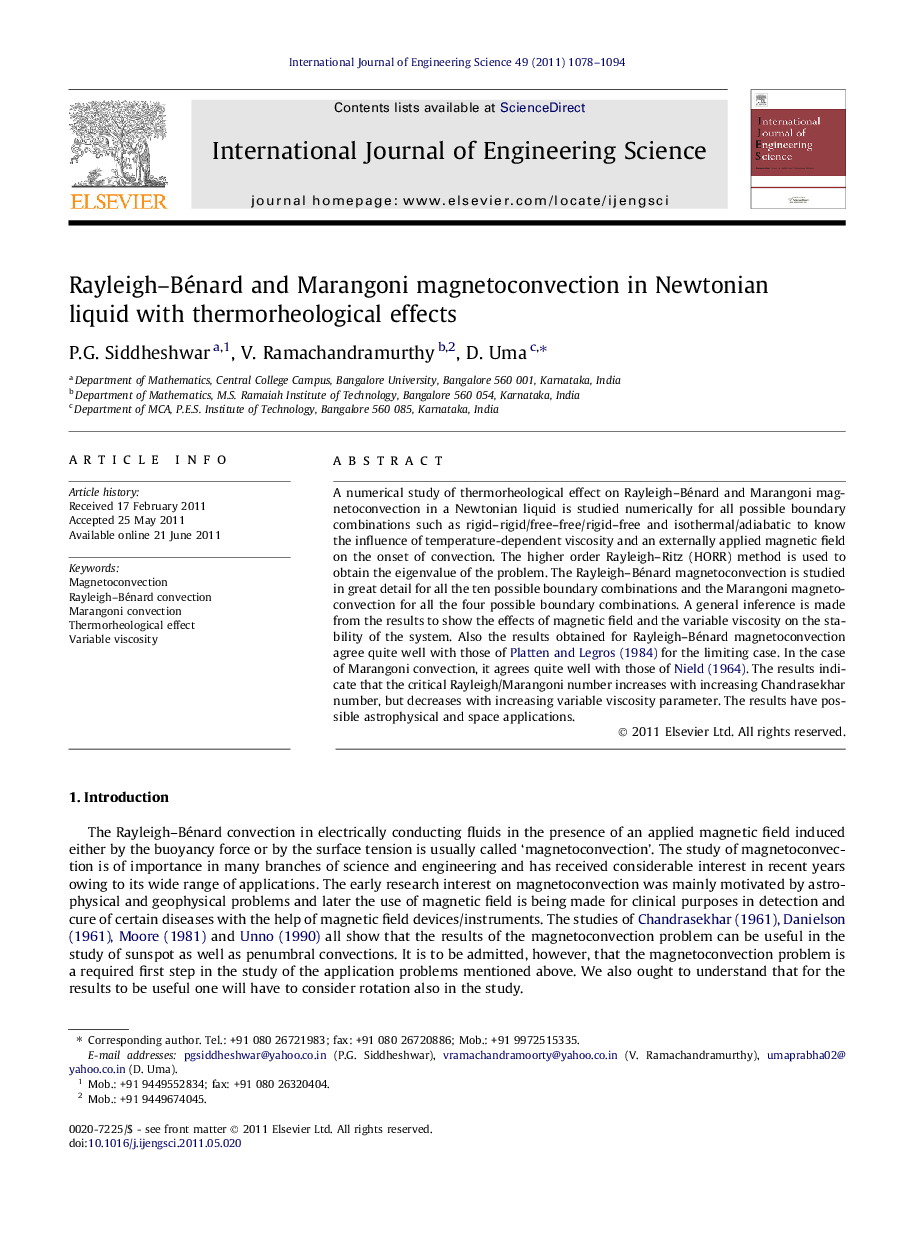| Article ID | Journal | Published Year | Pages | File Type |
|---|---|---|---|---|
| 825280 | International Journal of Engineering Science | 2011 | 17 Pages |
A numerical study of thermorheological effect on Rayleigh–Bénard and Marangoni magnetoconvection in a Newtonian liquid is studied numerically for all possible boundary combinations such as rigid–rigid/free–free/rigid–free and isothermal/adiabatic to know the influence of temperature-dependent viscosity and an externally applied magnetic field on the onset of convection. The higher order Rayleigh–Ritz (HORR) method is used to obtain the eigenvalue of the problem. The Rayleigh–Bénard magnetoconvection is studied in great detail for all the ten possible boundary combinations and the Marangoni magnetoconvection for all the four possible boundary combinations. A general inference is made from the results to show the effects of magnetic field and the variable viscosity on the stability of the system. Also the results obtained for Rayleigh–Bénard magnetoconvection agree quite well with those of Platten and Legros (1984) for the limiting case. In the case of Marangoni convection, it agrees quite well with those of Nield (1964). The results indicate that the critical Rayleigh/Marangoni number increases with increasing Chandrasekhar number, but decreases with increasing variable viscosity parameter. The results have possible astrophysical and space applications.
► Magnetic field delays the onset of Rayleigh-Bénard and Marangoni convection. ► For all values of Chandrasekhar number Rigid Isothermal Rigid Isothermal is the most stable and Free Adiabatic Free Adiabatic is the most unstable Rayleigh-Bénard system. ► Depending on the magnitude of Chandrasekhar number either Rigid Isothermal Free Adiabatic or Free Isothermal Free Adiabatic is the most stable marangoni system. ► Depending on the magnitude of Chandrasekhar number either Rigid Adiabatic Free Adiabatic or Free Adiabatic Free Adiabatic is the most unstable Marangoni system.
